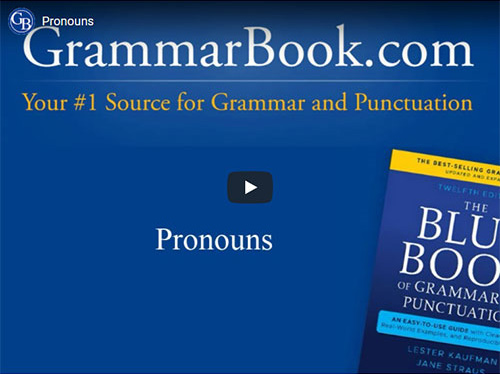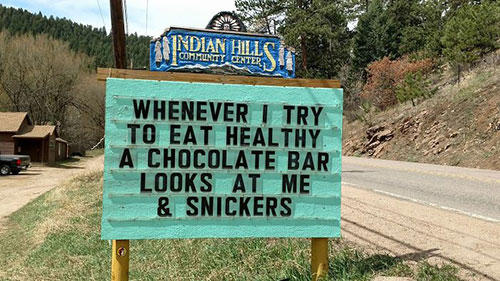|
Having trouble viewing this message? Click here to view it online.
To unsubscribe or change contact details, scroll to the bottom and follow the link.
|



|
|
Past Progressive Tense: Definition and Examples
|
|
We use verb tense in English to communicate when an action or state of being occurred. We also combine verb tense with grammatical aspect, which further indicates time-related characteristics such as the tense's duration, completion, or repetition.
English has three tenses (past, present, future) and four aspects (simple, perfect, progressive, perfect progressive), creating twelve primary tenses:
|
past |
present |
future |
| simple |
simple past |
simple present |
simple future |
| perfect |
past perfect |
present perfect |
future perfect |
| progressive |
past progressive |
present progressive |
future progressive |
| perfect progressive |
past perfect progressive |
present perfect progressive |
future perfect progressive |
In this discussion, we'll review how we use the past progressive tense in expressing the timing and aspect of actions in our writing.
Past Progressive Tense: Explained
The past progressive tense in English conveys an action that was ongoing and not resolutely concluded in the past. The action in progress had not yet finished but has done so by the time we learn of it.
The past progressive is formed by the singular or plural past tense of to be (was or were) and the -ing form of the verb, which we also refer to as its present participle (e.g., listening, planting, studying, flying, clearing, forming).
Examples
You were listening to the radio.
Keenan was studying for the test.
The sparrows were flying over the field.
Cell-phone flashlights were forming luminous specks in the stadium. |
Note the spelling of a verb's present participle changes if the verb ends in:
consonant + -e
Drop the -e: stare > staring, trace > tracing
-ie
Change the -ie to -y: die > dying, tie > tying
a final consonant after a short, stressed vowel
Double the consonant: run > running, grab > grabbing. In American English, the exceptions to this rule are verbs ending in -l, -w, -x, and -y: cancel > canceling, brew > brewing, fix > fixing, spy > spying. |
Examples
Isabella was tracing the outline for her drawing.
I was tying both shoes at once.
The contestants were grabbing wildly at the hundred-dollar bills.
The leopards in the brush were spying on the gazelles. |
As we can see in each sentence, an action was in progress. While the sentences do not tell us when the action was finished, we can still interpret that it did not continue into the present.
When to Use the Past Progressive: More Examples
We've established that the past progressive communicates an action in progress at a certain former time. The following are more examples of contexts in which we might use the past progressive.
Two actions in progress at the same time in the past
Jamaal was stacking the boxes while Bryan was loading the truck.
As you were preparing the cake, I was cooking the dinner.
"Yes" or "no" questions concerning past ongoing action
Were you really mowing the lawn yesterday?
Was the football losing air during the game?
(Note the subject and the auxiliary verb are switched within the question format.)
Ongoing activity that was interrupted in the past
I was watching the game when the pizza arrived.
Nathaniel and Ruth were painting the bedroom when the doorbell rang.
(Note the interrupting action is in the simple past tense, not the past progressive.)
Past ongoing actions with a specified scope of time
By lunchtime, the entire staff was starving.
Natalia was training semi-pro ice skaters all of last year. |
Past Progressive vs. Simple Past
At times the past progressive and the simple past can be confused in describing past actions. Simply remember that we would use the past progressive for actions that began before the particular time being discussed.
We would apply the simple past for an action that began at the time being discussed.
Past progressive: Evangeline was walking to the bank of the river. (Action had already started.)
Simple past: Evangeline walked to the bank of the river. (Past action had just begun.) |
Let's consider this further in a context with independent clauses in complex sentences.
Past progressive: When I arrived, Evangeline was walking to the bank of the river. (She had already started walking before I got there.)
Simple past: When I arrived, Evangeline walked to the bank of the river. (She started walking when I got there.) |
Verbs Not in the Past Progressive
In certain instances some verbs would not be written in the past progressive when they describe states or activities that don't involve mental or physical movement. These are known as stative verbs. Some examples are the verbs be, weigh, own, and have.
The context of the sentence will determine whether the past progressive is proper use. Compare the following pairs.
The crashing ocean waves were breathtaking. (simple past)
The crashing ocean waves were being breathtaking. (past progressive)
The bag weighed ten pounds. (simple past)
The bag was weighing ten pounds. (past progressive) |
Because stative verbs describe current states and activities within their timeframes and do not involve mental or physical movement, they will not always be expressed as being in motion. The simple past tense is the better fit in each pair.
Related Topics
Past Perfect Progressive
Present Progressive Tense
Present Perfect Progressive (Continuous) Tense
|
View and comment on this
article on our website.
|
|
|

|
Pop Quiz
Identify the past progressive tense in the following sentences. If it is used correctly, indicate "yes." If not, indicate "no" and correct the sentence.
1. While I was preparing the soup, the tax agent knocked on the door.
2. Back in those days, I was owning three different rental properties.
3. Kristie was printing the report while Kathy was writing the memo.
4. The Sandeeps were driving to Iowa when they learned about their lottery ticket.
5. When I was a boy, we were having a sandbox and a swing set in our backyard.
|
 |
The Blue Book of Grammar and Punctuation
by Lester Kaufman and Jane Straus |
The Authority on English Grammar! Twelfth Edition Now Available
An indispensable tool for busy professionals, teachers, students, homeschool families, editors, writers, and proofreaders.
Available in print AND as an e-Book! Over 2,000 copies are purchased every month!
To order the book, simply click the link to order the book from the GrammarBook.com website.
|
Free BONUS Quiz for You!
Friend, because you are a subscriber to the newsletter, you get access to one of the Subscribers-Only Quizzes. Click here to take a Than vs. Then Quiz and get your scores and explanations instantly!
We will be adding many more quizzes this year to our already substantial list of them. If you have suggestions for topics we have not yet covered, please send us a message at help@grammarbook.com.
|
Hundreds of Additional Quizzes
at Your Fingertips
Subscribe now to receive hundreds of additional English usage quizzes not found anywhere else!
Teachers and Employers
Save hours of valuable time! You may assign quizzes to your students and employees and have their scores tallied, organized, and reported to you! Let GrammarBook.com take the hassle out of teaching English!
"Fun to test my skills."
"The explanations really help ... thanks!"
"I can select the quizzes to assign to my students, and then the results are reported to me automatically!"
If you think you have found an error in a quiz, please email us at help@grammarbook.com
|
Wordplay

Pop Quiz Answers
1. While I was preparing the soup, the tax agent knocked on the door. Yes
2. Back in those days, I was owning three different rental properties. No (stative verb)
Correct: Back in those days, I owned three different rental properties. (simple past)
3. Kristie was printing the report while Kathy was writing the memo. Yes
4. The Sandeeps were driving to Iowa when they learned about their lottery ticket. Yes
5. When I was a boy, we were having a sandbox and a swing set in our backyard. No (stative verb)
Correct: When I was a boy, we had a sandbox and a swing set in our backyard. (simple past)
|
 |
English in a Snap:
68 One-Minute English Usage Videos FREE |
Learn all about who and whom, affect and effect, subjects and verbs, adjectives and adverbs, commas, semicolons, quotation marks, and much more by just sitting back and enjoying these easy-to-follow lessons. Share them with your colleagues (and boss), children, teachers, and friends as well! Click here to watch.
|
|